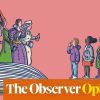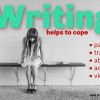-
 +20 +2
+20 +2Think women have never had it so good? You should take a look at medieval days
History shows that progress in gender equality is neither steady nor inevitable
-
 +31 +7
+31 +7Women Hunt in Most Foraging Societies, Using Their Own Tools And Strategies
Hunter-gatherer roles in human society are not nearly as gendered as anthropologists and archaeologists have traditionally believed, with narratives of 'man the hunter' and 'woman the gatherer' crumbling in the face of new evidence.
-
 +10 +4
+10 +4'I can't say my own name': The pain of language loss in families
Mithu Sanyal never learned her father's native language, Bengali, as a child. Is it too late to reclaim it?
-
 +21 +3
+21 +3Writing is therapy to heal old wounds, grief and trauma
Writing is therapy. We share stories of abuse, addictions, trauma, illness, crime and regrets. We tell stories of redemption and victory over challenges.
-
 +26 +4
+26 +4The Chronicles of a New York Locksmith -- Keys to the City
Leading up to his retirement, a New York craftsman trains his young protégé, in a short documentary by Ian Moubayed.
-
 +14 +3
+14 +3Your Boyfriend Didn’t Write You That Sweet Love Letter. These People Did.
If you've ever gotten a romantic letter or poem, there's a chance it was written by a secret professional.
-
 +3 +1
+3 +1AI writing assistants can cause biased thinking in their users
A biased "assistant" was able to influence the arguments made in essays.
-
 +24 +2
+24 +2Romantically Kissing Our Lovers Might Not Be The Fashion We Thought It Was
A new deep dive into humanity's history of romantic kissing has revealed that locking lips has a more complex story than some researchers have proposed.
-
 +18 +3
+18 +3Censorship: lifting the lid on those calling all the shots -- Meet The Censors
From a Kafkaesque office for social media in Germany and a South Sudan military headquarters, to conversations with an Iranian Ayatollah and Chinese news editor, Norwegian filmmaker Håvard Fossum intimately follows the daily working lives of the censors. With remarkable access to a secretive world, we get a rare insight into the ways information is controlled, from the Communist Party in Beijing to the corridors of power in Washington.
-
 +22 +2
+22 +2Kukeri : How a Bulgarian Village Dances Evil Spirits Away
Once a year, the Bulgarian tradition of Kukeri unites a small village as residents wear intricate masks and costumes and dance at night. Killian Lassablière chronicles the practice in his short documentary.
-
 +26 +4
+26 +4Yuval Noah Harari argues that AI has hacked the operating system of human civilisation
Storytelling computers will change the course of human history, says the historian and philosopher
-
 +21 +2
+21 +2The End of the Billionaire Mindset: A Celebration with Douglas Rushkoff
In an entertaining session of stand-up philosophy with Q&A, Rushkoff shares the stories of his encounters with the scientists, technologists, and billionaires hoping to leave humanity behind, while giving us the distance we need to laugh at their hubris and choose a different path.
-
 +3 +1
+3 +1Why reading books is good for society, wellbeing and your career
Our research showed reading as a teenager was a stronger indicator of curiosity than, say, their mathematical ability.
-
 +18 +5
+18 +5Gay teacher fabulously shuts down homophobic mom who pulled her kids from his class.
A drama teacher had the best response to the mom who stopped her kids from taking classes with him after discovering he was gay.
-
 +15 +3
+15 +3One million human deaths linked to factory farming, set to double by 2050
The excessive use of antibiotics in factory farming is causing the premature deaths of nearly one million people and $400 billion in global economic losses each year, according to a report titled Global Public Health Cost of Antimicrobial Resistance Related to Antibiotic Use on Factory Farms published today by World Animal Protection.
-
 +15 +4
+15 +4An Inglewood charter school looks to literacy to build success among its Black students
Wilder’s Preparatory Academy in Inglewood boasts test score results that reflect performance far above that of the state average for all schools regardless of racial composition.
-
 +10 +3
+10 +3Want to Turn the Pitiless March of Gentrification Into a Parable of Progress?
An article in the March 3 edition of The New York Times caught my eye as an illustration of what Barbara J. Fields and Karen E. Fields describe as “racecraft”—the alchemy that vests the fiction of race with an apparent natural existence—and how it can obscure the class character of a political program through racial mystification.
-
 +16 +2
+16 +2What Is Writing Therapy? Tips, Benefits, and Prompts to Start
Gen Z and Millennials are turning to writing therapy as an effective and cost-friendly alternative to talk therapy. Here's what to know.
-
 +1 +1
+1 +1Is There a Minimum Salary for Happiness?
Shoot for something between poverty and excess.
-
 +4 +1
+4 +1So… How “Doomed” Are We?
Five Levels of Ruin — And Where Our Civilization Ranks
Submit a link
Start a discussion




















